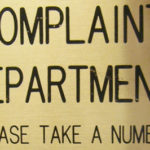How can I teach my children to be more earth-friendly?
The question itself takes a great step toward your children’s commitment to be more earth-friendly. If parents model appreciation for the world’s condition, our children will notice. That having been said, how can we intentionally pass along to our children our environmental commitment? The best source for this answer comes from my “green” daughter. My wife, Laurie, and I admire Katherine’s loyalty to God’s creation. As a recent college graduate, she exhibits as much devotion to God’s earth as any individual I know. What were her impressionable moments during her growing years? She remembers five simple, but profound, actions in our family:
• Recycle. Seeing the recycling bin on the curb every pick-up day and returning plastic bags to the grocery store revealed in her early years that we could do better than shift trash from our cans to a dumpsite. Today, she understands those dumps are not bottomless pits.
• Travel. Mission trips to less-developed countries revealed the evils of our wastefulness as compared to the need of others’ frugality. Witnessing how our neighbors lived accentuated the surplus we have and misuse. Today, she understands our need to protect the world for them, as well as for us.
• Turn out the lights. It sounded like a simple instruction to cut electric bills to a young girl. But today, she understands it not only saves money, but it also saves the planet. The energy spent on silent wastes of electricity, such as lighting an unused room or running a clock display on an empty coffee pot, was reducing available resources for others and cluttering the environment with its excess waste.
• Dispose of your trash properly. On a trip to the Eiffel Tower in Paris, the grandeur of the monument almost was overshadowed by the mounds of trash tourists had thrown on the ground below. The long wait for the ride to the top was spent picking up trash at the bottom. It seemed a futile effort at the time. But today, she understands a small action in a brief moment can make an eternal impact. A few other tourists joined the effort.
• Turn off the water. Water from the faucet was so easy to obtain, it was difficult to imagine its value when she was young. Trips to poverty-stricken countries, especially when potable water could only be found in purchased bottles, taught the value of clean water. Today, she understands the world’s pollution eventually could reduce an already-scarce water supply throughout the world and water should be treated respectfully, even through such simple acts as turning it off while brushing teeth or stopping a dripping faucet.
These small efforts may seem to be very simple in the eyes of young children, but they potentially lead to a way of life that reveals love and respect for God’s earth.
Allen Reasons, senior minister
Fifth Avenue Baptist Church
Huntington, W.Va.
Right or Wrong? is sponsored by the T.B. Maston Chair of Christian Ethics at Hardin-Simmons University’s Logsdon School of Theology. Send your questions about how to apply your faith to [email protected].















We seek to connect God’s story and God’s people around the world. To learn more about God’s story, click here.
Send comments and feedback to Eric Black, our editor. For comments to be published, please specify “letter to the editor.” Maximum length for publication is 300 words.